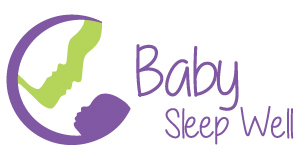As an early childhood nurse, I support parents in many ways with medical knowledge and skill. My highest priority is to empower parents and to make them feel good about the parenting choices they make as long as their baby is safe and as healthy as they can be.
There are many different views on whether “sleep training” for babies is safe or harmful but it is evident that many people have very strong views one way or another.
It saddens me that the information is presented in such a way that can cause parents to feel they may be harming their baby by changing sleep habits. My response to them is that while I don’t dispute the scientific data, I think the spin on the conclusions evoke more questions than answers and I try to give them the following reassurance:
Firstly, for a study to be evidence based it should have specific controls and variables which can be measured scientifically. I cannot imagine how such a study might be even remotely possible with babies given the individuality of any given baby and parent – such control groups would verge on impossible.
Secondly, language such as “thought to contribute to”, or “may be associated with” is not strong evidence.
Some studies mention stress levels in babies following “sleep training”. It is a scientific fact that sleep deprivation also raises these levels. It does not surprise me that there would be an elevated level continuing for a few days following some good sleep which would naturally decrease, but I don’t think any of the studies followed up any further than the first day.
My understanding of the studies that have been carried out is that the groups are small, making conclusions less reliable.
I believe (although this is also not scientific) that stress levels are high to begin with because of sleep deprivation and I often ask my parents, “Do you think it is more harmful to continue with the current levels of stress long term or do you think that the stress of changing a behaviour short term for long term benefit is a better, healthier option?”
In my experience (again, not scientific), the entire family benefit from better sleep and feel much more able to cope generally. I believe this would be similar for baby. In fact, many parents comment that there is a notable difference in their baby’s ability to cope in general when they are getting better sleep.
I sometimes direct them to this study just to give them a bit more reassurance.
http://www.abc.net.au/…/controlled-crying-babies-no…/7443878
Furthermore, a recent study shows extremely detrimental results due to sleep deprivation. It is not only baby that needs consideration but the entire family.
https://www.sciencedaily.com/releas…/2019/…/191121183923.htm
For studies to conclude that “sleep training” baby ”may be associated with” or “might contribute to” things that cause parents anxiety about their choices is unhelpful.
I will always support, encourage and empower parents to be the best parents they can be in their own way.
If you are happy with your settling techniques, whether that is holding your baby until they fall asleep, feeding to sleep or allowing to self-settle and feel you and your baby are getting adequate amounts of good quality sleep, then keep up the good work! If you feel that you and your baby could benefit from some professional advice about changing sleep behaviours, please contact me.
Kathy
If you have any questions or there are any topics you would like to see in future posts please don’t hesitate to get in touch.
